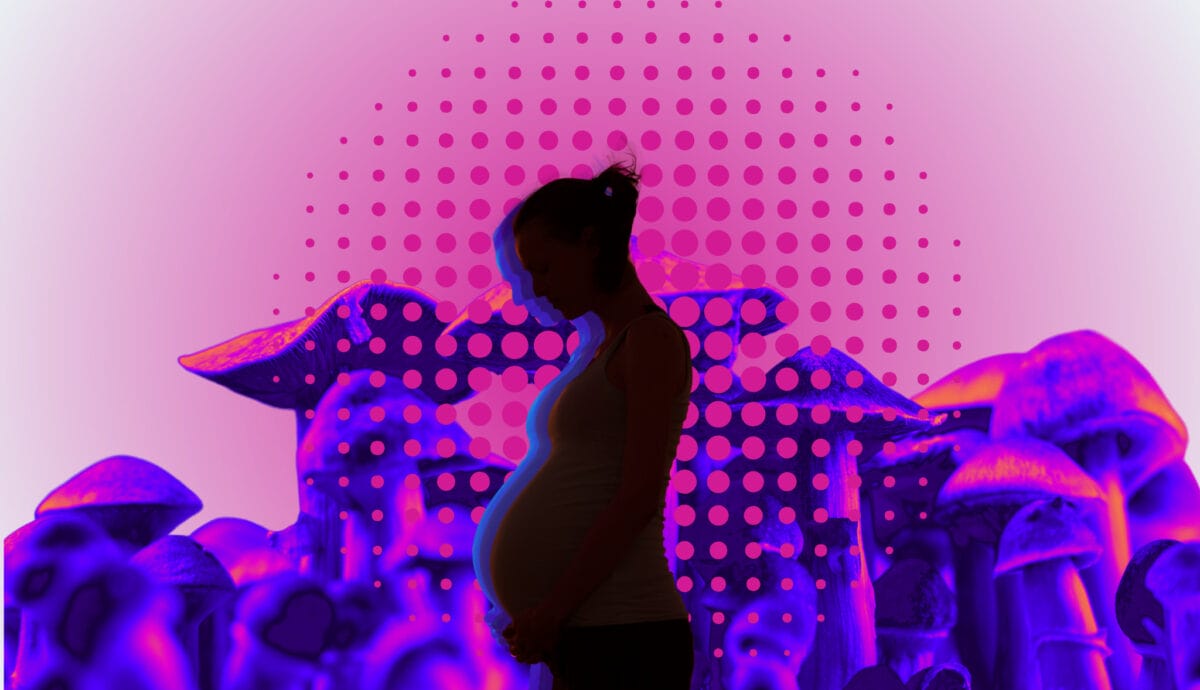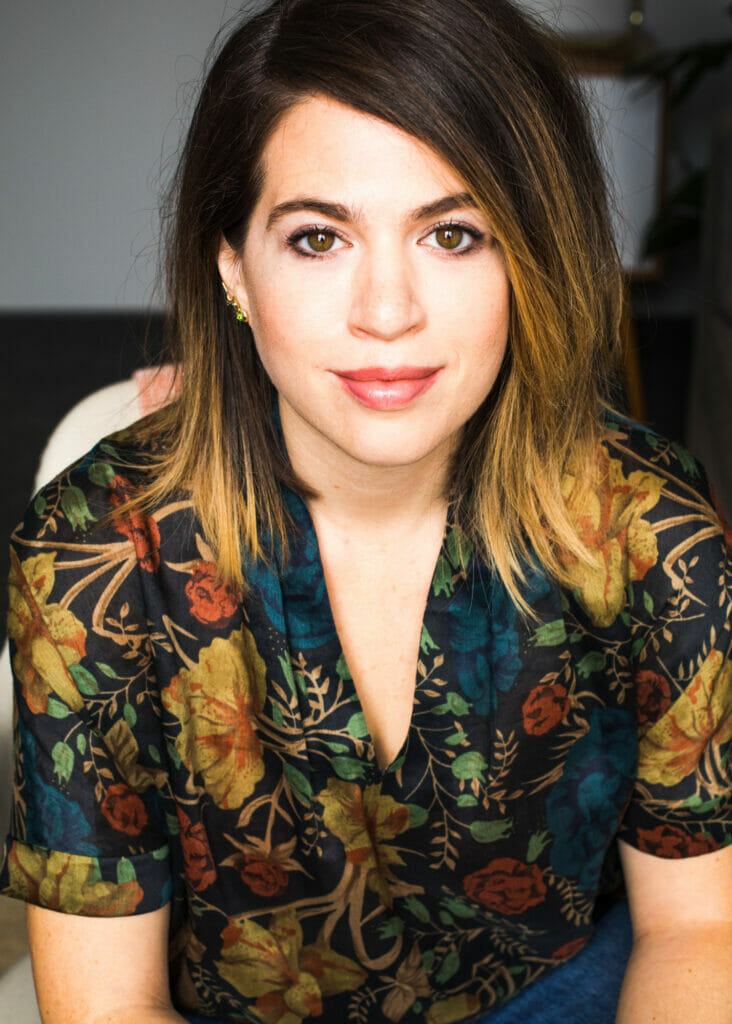Psychedelics and pregnancy is a highly controversial and often unspoken topic. But beyond the stigma, what does the research, law and culture say about mothers-to-be consuming psychedelics?
As she had done many times before, Leticia Pizano sat in ceremony with her medicine sisters waiting to feel the effects of the four grams of magic mushrooms that she had ingested. An experienced journeyer, Pizano found it strange that 45 minutes later she began vomiting, an effect she was unaccustomed to so early in the trip.
“The medicine just showed me that I needed to get that out of my body because I was with baby,” she told Psychedelics Today.
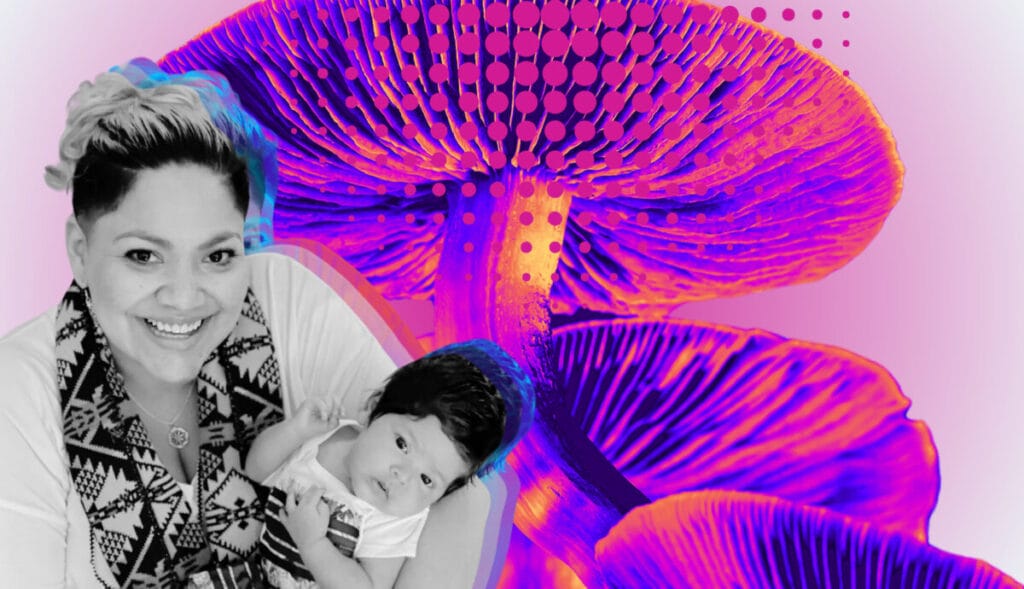
Still, the mushrooms took effect and led her on a trip she described as beautiful and empowering. The experience enabled her to form a deeper bond with her unborn child. “There’s just a different connection with her; almost non-human,” Pizano says of her daughter, six months old and the youngest of her twelve children at the time of this writing. After her daughter’s birth, Pizano brought her “medicine baby” to every plant medicine ceremony she attended.
For Pizano, participation in community-based ceremony was a motivating factor for her use of psychedelics, and her use during pregnancy was consistent with cultural norms — she is a member of the Sac and Fox and Kickapoo Tribal Nations, where partaking in ceremonies that include plant medicine sacraments occurs all through a person’s life. For most non-Indigenous people, such participation would be unusual and likely stigmatized, perhaps viewed as dangerous or irresponsible.
Yet, as psychedelics enter a more mainstream era, non-Indigenous birthing parents are relying on them as tools for wellness and even lifesaving measures to address treatment-resistant depression, anxiety, PTSD and addiction. Our current paradigms for substance use during pregnancy do not look at psychedelics with a thoughtful, critical lens. A new approach may be required to accommodate the myriad ways our culture has shifted towards turning to psychedelics over conventional treatments and medications for well-being.
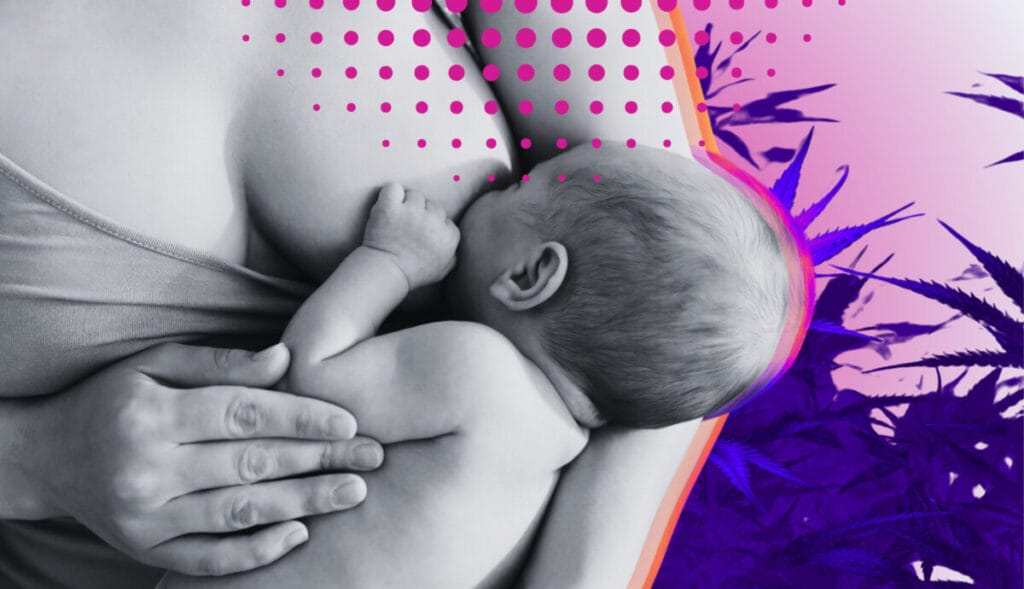
Information, Misinformation, and Disinformation: Research and Public Health Information on Psychedelics and Pregnancy
Just as with other psychotropics like antidepressants or anti-anxiety medications, birthing parents and their healthcare providers need to evaluate existing information on psychedelics and pregnancy to make informed decisions about whether to continue using them during pregnancy. But seeking information on the web yields few results. And what little information does exist on the topic is often confusing, incomplete and misleadingly shaped by the War on Drugs. One study on pregnancy and LSD – the study most commonly cited online in reference to psychedelics and pregnancy – was published in 1970.
The American College of Obstetricians and Gynecologists offers a blanket statement recommending the cessation of all marijuana use. Other psychedelics are similarly classified into a category of “substances that are commonly misused or abused,” a classification that bears the markings of bias and misinformation. According to the Global Drug Survey, we know that many psychedelic users ingest these substances in a safe, prepared and informed way, and according to longtime drug researcher David Nutt’s book, Drugs Without the Hot Air, psychedelics like mushrooms and LSD are not inherently addictive.
The March of Dimes, a research and advocacy group for mothers and babies, offers an unsourced page last edited in 2016 on their website that reads: “Street drugs are bad for you, and they’re bad for your baby.” The psychedelics included in this category are “ecstasy” and “other club drugs.” This broad categorization fails to account for the therapeutic applications of psychedelics. It also excludes critical factors like set, setting and dosage, all of which make a significant difference in a psychedelic user’s experience.
Mother to Baby provides more nuanced and specific information on psychedelics, but offer inconsistent guidance on the site. One article advises “Other street drugs, like cocaine, heroin, LSD, MDMA (ecstasy or Molly), and methamphetamine, also are harmful during pregnancy.” While the site’s Fact Sheets for both LSD and MDMA state that it is unknown whether the substances cause pregnancy-related problems.
These blanket prohibitions are largely based on the absence of—rather than the presence of—information about how a substance will impact a growing fetus. The medical research canon contains very little information about the effects of these substances during pregnancy, and substantial obstacles exist for this research to take place at all.
Due to ethical and safety concerns, “The research we do have on pregnancy in general—let alone pregnancy with psychedelics or plant medicine—is minimal because we don’t do research in pregnancy for the most part,” says Jessilyn Dolan, a registered nurse, herbalist, hemp farmer and former member of the Board of Directors for the American Cannabis Nurse Association.
Aside from ethical considerations, says Dolan, another challenge is measuring the long-term health impacts to the child of just one substance due to the enormity of confounding factors. For example, is a person who consumes cannabis edibles during pregnancy also consuming caffeine, alcohol, or prescription medication? How might these substances along with the birthing parent’s diet and lifestyle impact the long term health outcomes for the child? And how might the child’s environment, including exposure to toxins, food insecurity, poverty or traumatic life events, play a role in their health as well?
“When we look at pregnancy, breastfeeding and chest feeding and then doing longitudinal studies around kids, we have so many factors working against us to make that research really legitimized and standardized,” says Dolan.
Of the existing research on this topic, most is either outdated or based on small sample sizes. As legal restrictions on these substances shift, this may change. But information about the safety of ingesting substances during pregnancy is still scant, inconclusive and conflicting.
A study from 1968 on nine children exposed to LSD-25 in utero found elevated levels of chromosomal damage compared to a control group. However, none of these babies exhibited any birth defects. This study, with its very small sample size, has never been replicated. It also did not look at long-term outcomes for these children, rendering the results limited in value.
Similarly, an often cited and widely circulated study from 1994 compared 24 newborns exposed to cannabis to 20 who were not; results at 30 days showed that the cannabis-exposed babies actually scored higher on measures of alertness, were less irritable and had better reflexes. But this study, again with a small sample size and never replicated, did not take into consideration the many confounding factors that could have contributed to the results. For example, the study took place in Jamaica where cannabis use during pregnancy is a common practice and is not stigmatized. In addition, the heavier cannabis-using birthing parents were also more educated, more financially stable and had fewer other children to care for, all of which could have impacted outcomes for their babies.
More broadly, research on prenatal drug exposure is often mired in biases. In his book Drug Use for Grownups, Dr. Carl Hart details several problems associated with brain imaging research on people exposed prenatally to drugs. It is easier to get findings published, he says, when they are consistent with the widespread notion that drug use is bad for the developing fetus. In addition, Hart writes the findings are almost never replicated and researchers often ignore their own data in order to draw conclusions that reflect their own biases.
Still, experts in the field like Amanda Feilding, executive director of the Beckley Foundation, a UK-based NGO that funds psychedelic research and supports policy change, remain hopeful about the prospect for more research on the topic
“Scientific exploration could be carried out using animal models, or using naturalistic surveys to get answers from people who are already using or have already used psychedelics during their pregnancy,” Feilding says.

Keeping a Close Watch on Pregnant Bodies
Weighing risks of physical harm to the fetus against physical or mental health outcomes for the birthing parent is one framework for decision-making of this kind. But these calculations are not the only ones a birthing parent will have to assess. Most people who have experienced pregnancy will be familiar with an increase in monitoring by friends, family and even strangers who may feel entitled to comment on body changes, touch the pregnant person’s body without permission, or offer unsolicited advice or opinions on what the pregnant person ingests. Using psychedelics openly may create social stigma and isolation; the anxiety and stress that those conditions create may pose an additional risk for pregnant people.
Pregnant people are also monitored more closely by state and healthcare agencies. The American Academy of Pediatrics and American College of Obstetricians and Gynecologists recommends screening a pregnant person for drugs when they enter prenatal care. Twenty-five states and the District of Columbia require healthcare professionals to report even suspected drug use, and eight states require them to test for prenatal drug exposure if they suspect drug use. In 2014, Tennessee became the first state to pass a “fetal assault” law specifically allowing prosecution of pregnant women who use drugs, imposing penalties of up to 15 years in prison. The legislation was so controversial it was discontinued in 2016, but has been introduced several times since.
Monitoring for drug use, however, happens disproportionately along racial lines. While white and Black birthing parents have similar rates of any drug use during the prenatal period (though the substances used and patterns of use may differ slightly), an often-cited study from 1990 found that Black birthing parents were 10 times more likely than their white counterparts to be reported to health authorities for their drug use.
Some states are actively working to correct these disparities, with mixed results. A 2015 study of California hospitals that adopted a protocol to monitor all birthing parents for prenatal substance use found that it did not impact child protective services reporting disparities.
New York has taken a different approach. In a testimony to the New York City Council from 2020, David Hansell, Commissioner of the New York City Administration for Children’s Services, stated that the agency had actively discouraged health professionals from making reports to them about a child or parent who tests positive for a substance if there is no negative impact on their well-being and instead make a referral to a service agency. While this could theoretically help level out racial differences, the question remains whether the service agencies would be equipped and trained to adequately address the physical and mental health and other needs of a birthing parent using substances.
Vermont has also taken steps to eliminate the reporting requirement for healthcare practitioners treating birthing parents using substances. If a birthing parent tests positive only for marijuana, they are exempt from hospitals’ and healthcare professionals’ reporting requirements to the Department of Children and Families (although if the marijuana use is thought to endanger a child, it must be reported). The marijuana-only exemption in Vermont is informed by the lack of sufficient evidence suggesting that marijuana use during pregnancy is harmful. But similarly, there is a lack of sufficient evidence demonstrating that other psychedelics are harmful.
For birthing parents who do test positive for substances, their risk of losing custody is also informed by structural racism within the child welfare system. According to Dr. Kelly Sykes, a psychedelic integration therapist and child forensic psychologist, disparities exist between legal systems that govern custody and child protection systems. Allegations of abuse, neglect and drug abuse requiring court intervention exist in both systems. However, only parents within the child protection system—which disproportionately impacts poor single parents of color—can have their parental rights terminated and be permanently banned from having contact with their child. Further, all aspects of their parental judgement are subject to scrutiny; they may be randomly tested for substances, regardless of whether substance abuse was a part of their child protection case.
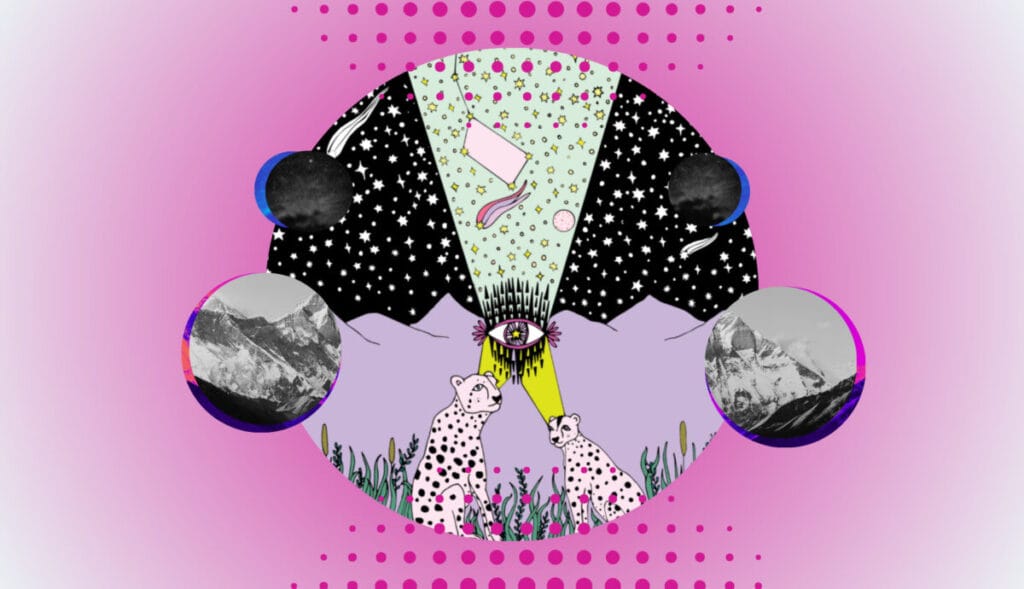
Community Support: Making Decisions on Psychedelics During Pregnancy
In this landscape of inconclusive, biased, and misleading information, how can birthing parents make informed decisions on this topic? And without information from peer-reviewed, evidence based research, what might drive someone to elect to use psychedelics all the same during their pregnancy?
For some birthing parents, the mental health benefits outweigh the potential risks.
“Psychedelics can reduce anxiety and depression, and can help people cope with dramatic changes in their lives,” said Feilding. “For those reasons, it’s certainly possible that psychedelics could be beneficial for expectant mothers struggling with prenatal depression or anxiety.”
Dolan, who has worked with pregnant people using cannabis to address treatment-resistant hyperemesis, a condition in pregnancy that creates severe and persistent nausea, frames the issue similarly. If anxiety and stress impede on the connection between parent and baby, research shows that “the relationship and connection is just as, if not more important than the little bit of pharmaceutical that’s going to pass through your breastmilk or pass through in utero to the child,” she says.
Being in a safe, supportive community to help weigh those decisions and process experiences in a nonjudgmental way can be very helpful. For someone like Pizano, this community is built into her everyday life. She grew up attending peyote ceremonies for occasions like baby namings, funerals or healing, and the wisdom she relies on comes from a long lineage of oral tradition, passed down by elders.
For those without such a cultural container, more options are emerging for pregnant people in need of support. A recent Psychedelics Today webinar explored the subject of psychedelics and parenthood with Dr. Glauber Loures de Assis, Associate Director of Chacruna Latinoamérica in Brazil. Groups like Plant Parenthood (which this writer founded) and Moms on Mushrooms also bring together parents to speak about topics that are so stigmatized, they’re rarely spoken about with others.
“Obviously safety is still a primary concern when it comes to kids and psychedelics, let alone issues like pregnancy,” says Andrew Rose, who co-facilitates Plant Parenthood. “But the riskiest thing is not talking about it at all. You can’t have good healthy community education without open, non-judgmental communication.”
Without a clear path for more research on the horizon, and with a landscape of confusing information to draw from, birthing parents will likely struggle to find simple answers. Individuals will still need to factor in their own level of vulnerability, which varies greatly based on race and other socioeconomic and cultural factors. Perhaps the answers we seek do not exist within a search engine, but in a patchwork of wisdom from Western medical research, ancestral knowledge and most importantly, our own inner healing intelligence.
